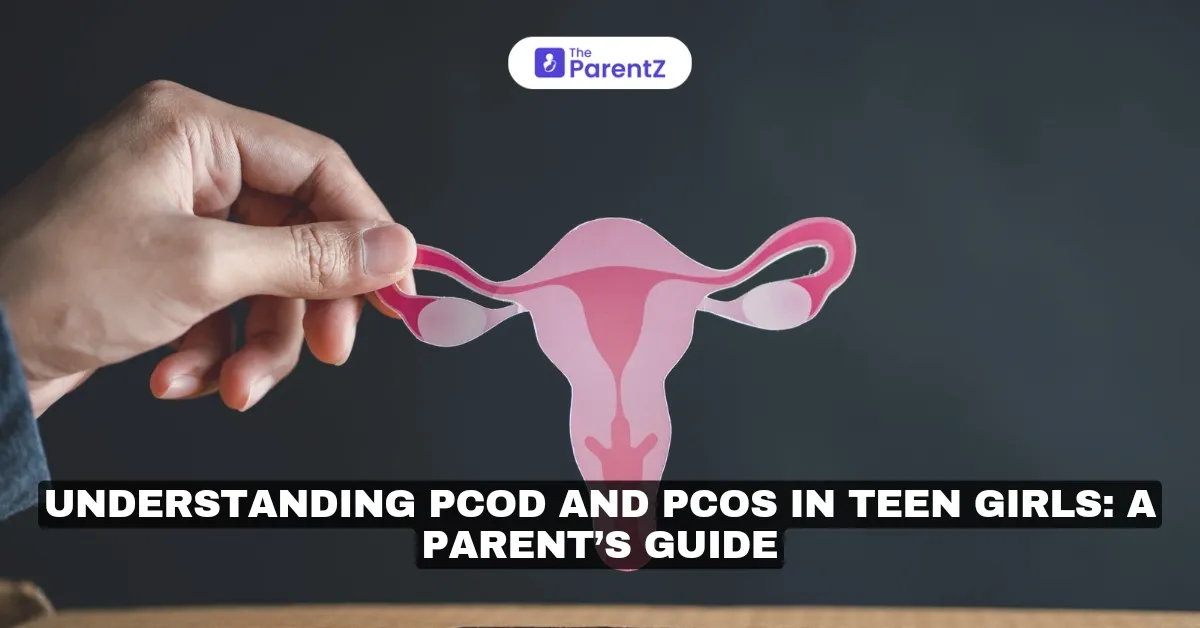For parents, watching their daughters grow and reach new milestones can be both exciting and worrisome. As young girls enter puberty and begin menstruating, hormonal changes are natural, but sometimes these shifts bring unique challenges, such as Polycystic Ovary Disease (PCOD) and Polycystic Ovary Syndrome (PCOS). These common hormonal conditions can impact a young girl’s health in ways that may not be immediately visible but can affect her quality of life now and in the future. In this article, we’ll break down what PCOD and PCOS are, who they affect, signs to watch for, and how parents can support their daughters’ health journey through early understanding and treatment.
What is PCOD and What is PCOS?
PCOD (Polycystic Ovary Disease) and PCOS (Polycystic Ovary Syndrome) are related but distinct hormonal conditions that affect the ovaries. Both conditions are linked to an imbalance in reproductive hormones and can lead to the formation of small cysts in the ovaries.
• PCOD: This is a condition where the ovaries produce immature eggs, which over time can develop into cysts. PCOD can lead to irregular menstrual cycles, but it is typically less severe than PCOS and often does not impact fertility.
• PCOS: This syndrome is a more complex hormonal disorder. Along with the formation of ovarian cysts, PCOS is associated with higher levels of male hormones, which can affect ovulation, fertility, and overall health. PCOS is more likely to cause long-term health challenges, including fertility issues and metabolic concerns.
Who Is Affected by PCOD and PCOS?
PCOD and PCOS are relatively common conditions, affecting approximately 10% of young girls and women. They often begin around the time a girl starts her menstrual cycle, although symptoms might not become noticeable until a few years later. These conditions can arise due to genetics, lifestyle factors, or even underlying hormonal imbalances.
Signs and Symptoms to Look Out For
Parents may notice certain changes in their daughters that could indicate PCOD or PCOS. While every girl is unique, here are some common symptoms:
1. Irregular Periods: Menstrual cycles that are longer than 35 days or shorter than 21 days, very heavy or very light bleeding, or skipped periods altogether.
2. Excessive Hair Growth: Dark, coarse hair appearing on the face, chest, or back (a condition called hirsutism) due to an increase in male hormones.
3. Acne and Oily Skin: Persistent acne, particularly along the jawline or cheeks, may indicate hormone-related skin issues.
4. Weight Gain: Sudden or unexplained weight gain, especially around the waistline, is a common sign of PCOS.
5. Thinning Hair on the Scalp: Hair may become thinner and weaker, even leading to noticeable hair loss in some cases.
6. Mood Swings and Fatigue: Hormonal imbalances can contribute to mood changes, low energy levels, and even anxiety or depression.
Why Early Detection Matters
Identifying and addressing PCOD or PCOS early can make a world of difference in your daughter’s health. Left untreated, these conditions can lead to challenges like:
• Future Fertility Concerns: Irregular ovulation can impact fertility down the line.
• Metabolic Issues: Women with PCOS are more likely to develop insulin resistance, increasing the risk of diabetes and heart disease.
• Weight Management Challenges: Unexplained weight gain may lead to obesity-related complications.
• Mental Health: The stress of managing symptoms, especially during teenage years, can affect self-esteem and mental well-being.
Treatment Options and Lifestyle Tips
The good news is that PCOD and PCOS can be managed effectively, especially when detected early. Treatment options may include:
1. Diet and Exercise: A balanced diet rich in whole grains, vegetables, lean proteins, and healthy fats, along with regular exercise, can help manage weight and improve insulin sensitivity.
2. Hormonal Medications: For some girls, a doctor may prescribe birth control pills or other hormonal medications to regulate periods and reduce symptoms like acne and excessive hair growth.
3. Blood Sugar Management: In cases with insulin resistance, medications or specific diets to stabilize blood sugar levels may be recommended.
4. Stress Reduction: Techniques like yoga, meditation, and adequate sleep can be beneficial, as stress can aggravate hormonal imbalances.
5. Regular Medical Checkups: Regular visits to a healthcare provider can help monitor symptoms and adjust treatments as needed.
Conclusion
PCOD and PCOS can be complex to understand, especially during the formative teenage years. But by staying informed and watching for early signs, parents can play a crucial role in ensuring their daughters receive the care they need to thrive. With early diagnosis, balanced lifestyle choices, and the right medical support, girls affected by PCOD or PCOS can look forward to a healthy, fulfilling life. As parents, your support and understanding are powerful tools in helping your daughter navigate these challenges confidently.






